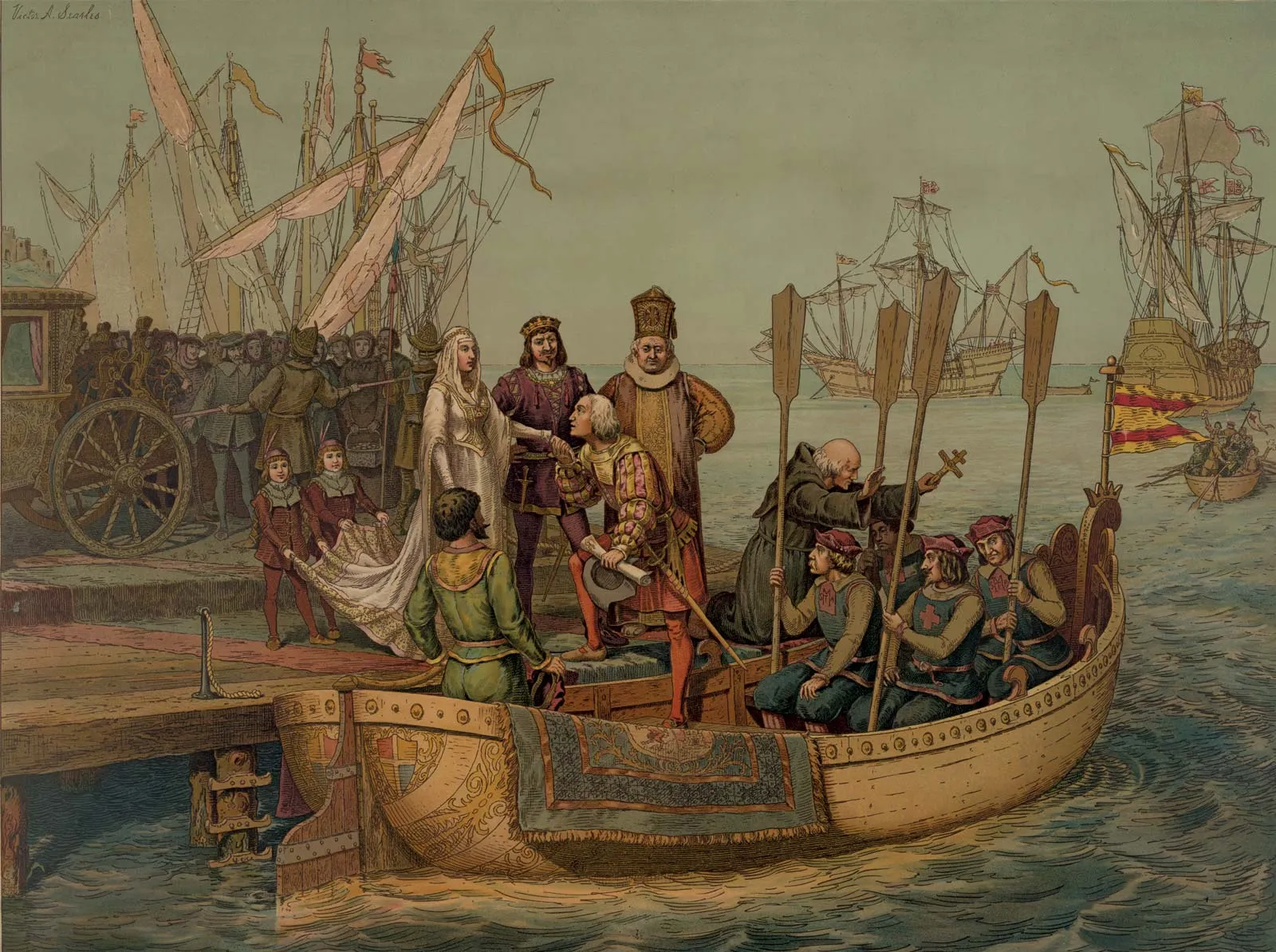DNA Study Confirms Christopher Columbus’s Remains Entombed in Seville Cathedral

The remains of the explorer are confirmed, but so far, the ‘nationality’ of the man attributed to history as Christopher Columbus remains an enigma.
Christopher Columbus News
In a breakthrough discovery, researchers from Spain have finally proved that the bones buried inside Seville Cathedral are those of Christopher Columbus, solving one of the most hotly debated mysteries in the Christopher Columbus book of history. A study led by forensic expert José Antonio Lorente from the University of Granada made DNA samples from the remains in Seville compared to those belonging to Columbus’s son, Fernando, and his brother, Diego, to prove it conclusively.
This much-needed discovery, one of the latest Christopher Columbus news ends a rumor which survived for decades on whether the bones interred in the cathedral are actually his. When Columbus died in 1506 in Valladolid, Spain, his remains were transferred several times and people were already confused as to if it were actually there where he lay to rest. Now, five hundred years later, there exist all the necessary proofs which confirm Spain as the final home of the legendary explorer who impressed his signature in the pages of history.
Christopher Columbus First Voyage
He is more famous for his first voyage across the Atlantic in 1492 when he considerably “discovered” the New World. Sailing under the flag of Spain, Columbus embarked on an expedition aboard the three most notable Christopher Columbus ships: the Santa María, the Pinta, and the Niña. His expedition was originally conceived as one that established a new route to Asia but would prove instrumental in opening up the Americas for future European exploration and occupation.
Christopher Columbus’s arrival in the Caribbean generally served as a significant event in world history. Christopher Columbus discovered lands triggered the beginnings of European colonization. Even if Christopher Columbus is appreciated as a bold navigator, his legacy is still considered highly disputable due to the tragedy his expeditions brought upon the native population: mass death and cultural annihilation.

Christopher Columbus Nationality
The mystery over Columbus’s remains is finally settled, but the question of his nationality is still pending. The issues are whether Christopher Columbus was a Genoan from Italy, as publicized by the earlier historians, or if he came from Spain, Portugal, Greece, or elsewhere. Waiting in the wings is a documentary called Columbus DNA: His True Origin, which will unlock what is the truth about the explorer.
The long and noisy argument is to reach an end on October 12, 2024, with the program on national Spanish broadcaster RTVE. The discovery will finally bring an end to all speculations as to whether the famous explorer Columbus was actually Italian or from another land. Long had this speculation about Columbus’s background engulfed the form of people’s interest in the form of theories, ranging from him being a Jew to simply Catalan.
Modern Context of the Legacy of Columbus
The history of Christopher Columbus is still quite contentious. While there have been welcomes to open the doors of the New World, his legacy largely remains a site of controversy for the impact of European colonization on native populations. In recent years, Columbus’ news has picked up focus on the demolition of statues and calls to reassess his role in history.
Despite the controversy brought about by Columbus, this explorer remains the most important figure in history. The voyages and achievements of Columbus have been immortalized in many books about Christopher Columbus, most of which narrate the successes and failures of his expeditions.
The Last Resting Place of the Legend Explorer
Even though it has been ascertained that the remains of Columbus lie in Seville, his posthumous journey was as exciting as his life. The body was carried from Spain to Hispaniola and Cuba. Thereafter, it ended up back in Seville in 1898. Some of his remains are said to be hiding in the Dominican Republic, inside the Faro a Colón monument, but DNA has proved that his skeletal remains in Seville belong to the great explorer.
The continuing unmasking of news about Christopher Columbus unravels more of the life and identity of the navigator and continues to keep the world involved with achievements as well as the questions surrounding this discovery that revolved around one of the world’s most famous explorers. From the very discovery of the Americas through debates concerning his true nationality, Christopher Columbus remains part of our evolved understanding of history. The next reveal about his origins will form the next chapter to the evolving tale of one of the world’s most famous explorers.
FAQ:
What was Christopher Columbus famous for?
He is best known as the discoverer of America, although this isn’t a strict statement.
Who discovered America in 1492?
Though not exactly true, Christopher Columbus is said to have discovered America in 1492.
Was Christopher Columbus from Spain?
Recent studies show he is believed to have lived in Spain.
What did Columbus bring back to Spain?
Small amounts of gold and plants.




